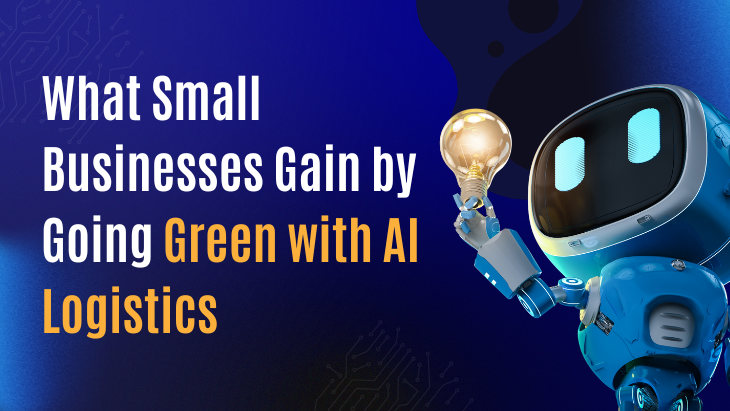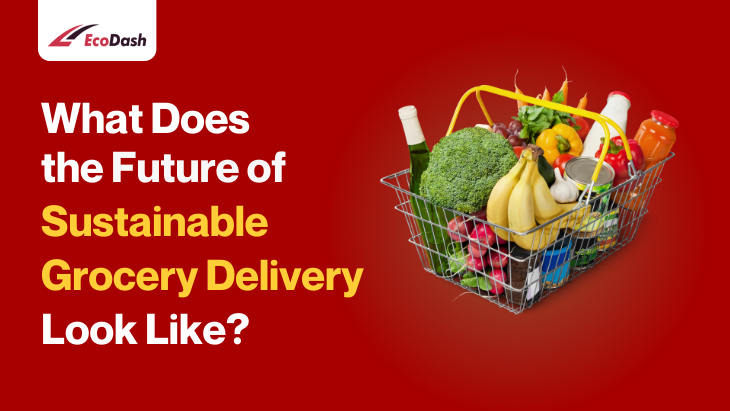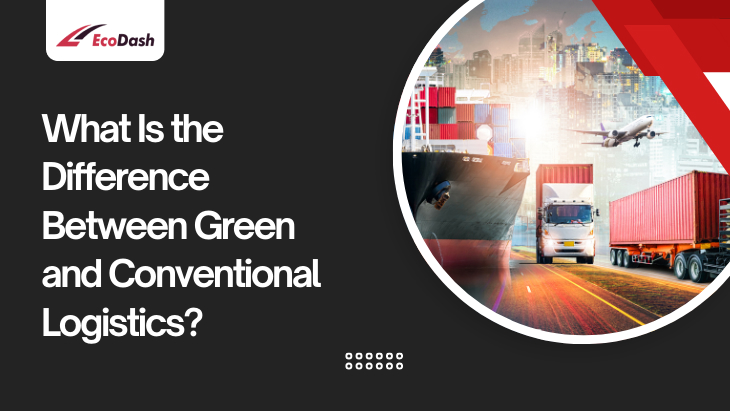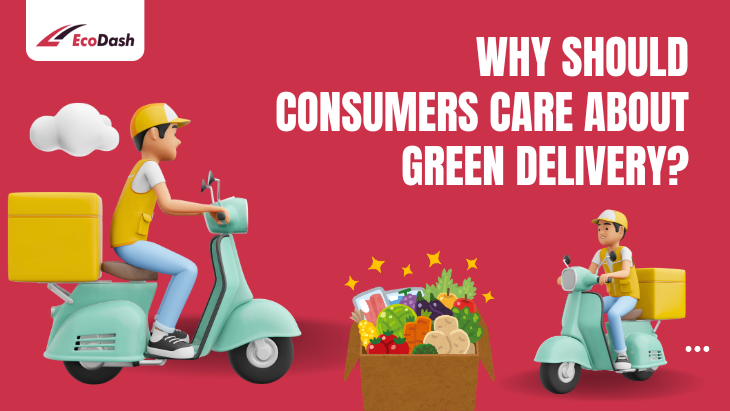Sustainability is not a buzzword anymore; it's an economic imperative. As climate change, escalating fuel costs, and consumer consciousness influence the market trend, small businesses are beginning to grasp the need for environmentally friendly business practices. For most, the logistics chain is the place to begin making changes. Fast Grocery Delivery in Canada Through the use of AI-driven logistics solutions, small businesses can minimize environmental costs while optimizing operational efficiency. In competitive markets such as quick grocery delivery in Canada, this green revolution is not just ecologically sound but financially astute as well.
AI in Logistics: Small Business Game-Changer
Artificial intelligence is transforming logistics by automating choice, streamlining routes, and allocating resources more effectively than any human system could. For small businesses, which usually have fewer employees and budgets, AI offers a means of competing with big players without compromising on performance. Intelligent logistics platforms driven by AI absorb data traffic conditions, customer behavior, weather predictions and apply this intelligence to optimize deliveries, minimize downtime, and eliminate unnecessary miles. This results in quicker service, less fuel consumption, and content customers.
Reducing Carbon Footprints Through Route Optimization
One of the most straightforward manners in which AI assists small businesses in going green is by means of smart route planning. Conventional delivery models tend to depend on static maps or human scheduling, which results in backtracking and increased routes. For business organizations involved in quick grocery delivery in Canada, where time-critical deliveries are the standard, not only is this less emissions-intensive, but it also means perishable items arrive with customers promptly and without compromise.
Energy Efficiency and Intelligent Fleet Management
Small businesses can keep track of car use, servicing requirements, and fuel usage in real time. AI technology can recommend changing to electric vehicles for local delivery or when bundling several shipments onto one route. With increased demand for same-day or next-day delivery, vehicle efficiency management is a key priority. Companies that optimize their fleets not only lower their carbon footprint but also realize substantial fuel and maintenance cost savings.
Satisfying the Demand for Eco-Friendly Shopping
Consumers today are concerned about where their products originate and how they get delivered. In Canada, environmental awareness is changing purchasing behavior—particularly in grocery delivery, where pollution by vehicles and waste from packaging have come under scrutiny. Those firms that implement green logistics solutions with the help of AI are able to actively market their greenness. Such marketing increases customers' confidence and loyalty if they embrace environmental responsibility. In competitive markets such as quick grocery delivery in Canada, highlighting a focus on sustainability can become a differentiator for your brand.
Waste Reduction and Inventory Forecasting Using AI
AI is not only responsible for delivery logistics—it's also important for inventory management and reducing waste. Grocery companies, especially, are working with products that have short shelf lives. AI technologies enable more accurate demand forecasting by reviewing past sales, seasonal patterns, and extraneous variables such as holidays or weather patterns. By reducing food wastage, streamlining storage, and minimizing over-purchasing, small businesses can save costs. This results in a greener and more efficient operation.
Cost Savings Without Compromising Speed
Greening up with AI does not have to compromise speed or add operational expenses. AI, in fact, makes small businesses deliver quicker and more efficiently. Automated dispatch management, route optimization, and real-time tracking enhance turnaround time as well as minimize operational delays. With the elimination of wasteful processes and enhanced overall efficiency, firms save money while providing high-end service. For customers wanting quick grocery delivery in Canada, this translates into on-time receipt of orders while contributing to businesses that give a hoot about the planet.
Improved Customer Experience through Transparency and Credibility
Logistics systems empowered by AI offer real-time tracking and delivery statuses, which enhance transparency for customers. Small companies can leverage these tools to directly communicate with customers regarding delivery timelines, green packaging, and environmental initiatives. When customers are made to feel in the know and aligned with a company's values, they are more likely to remain loyal. AI also anticipates future disruptions and suggests remedies beforehand, like diverting traffic or postponing deliveries to low-emission time slots. This yields a more efficient and satisfying customer experience.
Regulatory Compliance and Access to Green Incentives
Governments throughout Canada are providing incentives and tax credits for companies that adopt green technology. Logistics systems powered by AI ensure that companies comply with emission laws, energy consumption regulations, and waste disposal regulations. Compliance with environmental policies ensures not only that small businesses avoid fines but also that they become qualified for grants and subsidies supporting environmentally sustainable activities. This subsidy makes the switch to green logistics more viable and appealing, particularly for startups and family businesses.
Future-Proofing Small Businesses in a Competitive Environment
As sustainability becomes the hallmark of business success, embracing AI-driven green logistics is a means for small enterprises to future-proof their operations. Whether surviving fuel shortages, responding to regulatory shifts, or keeping pace with changing consumer demands, firms that invest in green logistics today will be better positioned to ride out tomorrow's challenges. In fast-growing industries such as fast grocery delivery in Canada, adopting AI logistics early is not an enhancement—it's a competitive edge.
Conclusion
The confluence of AI and green logistics presents unprecedented opportunities for small businesses. Eco-dash By enhancing speed of delivery, lowering emissions, and keeping pace with environmentally aware consumers, businesses can develop responsibly and sustainably. Implementing AI in logistics isn't technology—it's building a brighter, cleaner future. For Canadian small businesses that want to deliver quicker while lowering their footprint, embracing AI-driven logistics is the next vital move.


 Cart
Cart







Leave a reply